What Churches Do & How They Get the Grant Money
by Eileen Kinch

Q. What is a Missional Operations Grant (MOG)?
A. Mosaic’s MOGs fund creative ways for Mosaic congregations to do missional activities, both in the immediate community and beyond.

Q. What does missional mean? (Does this only mean evangelism?)
A. Evangelism is one example of a missional activity. Missional refers to the way congregations participate in the reconciling love of God through Christ. Any activity of the church can be missional.

Q. What is an example of creative missional engagement?
A. Plains Mennonite Church (Hatfield, PA) has a park on its property that is open to the community. Along a path in the park are panels that tell stories about peacemakers and give information about what it means to be a Mennonite. In 2022, Plains Mennonite Church used a MOG to pave its “peace path” so that families with strollers can more easily use it. The paved path also improves mobility for those with physical challenges.
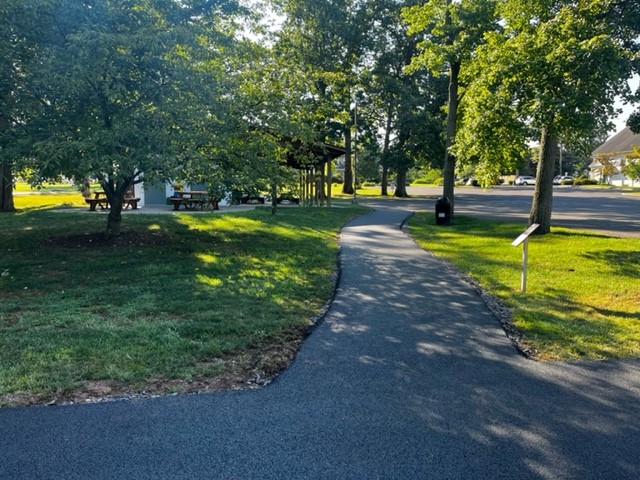
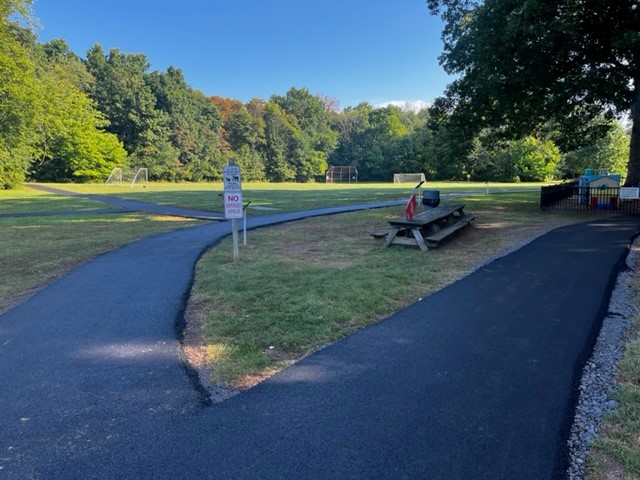

Q. What happened after Plains paved the peace path?
A. More people now use the path since it has been paved. Some have expressed gratitude for easier navigation. Families are leaving pedal car toys along the path for other children to use. Families even get together to watch their children race their cars. The paved path allows more people to read about peace, and the path is also building community.

Q. My congregation doesn’t have a peace path. What else can a MOG be used for?
A. Salford Mennonite Church (Harleysville, PA) used the grant to host a “Gardening For Peace” conference in 2022. Over 200 people attended throughout the weekend. John Thomas, a Lenape elder, representatives from Ursinus College, and John Ruth talked about the need for ongoing dialogue with the Lenape community. There were also workshops about various aspects of peace, including one on prison ministry. In the evening, Shane Claiborne and Mike Martin converted a gun into a gardening tool. A video of the event can be found here.

Q. How did “Gardening For Peace” impact others?
A. In one workshop, ex-inmates shared about their experience of returning to society after serving a prison sentence. These individuals stayed for the evening meal during the conference and later remarked that they really enjoyed the food and fellowship. Ex-inmates do not always experience this. The Gardening for Peace conference also opened the way for future opportunities for dialogue with the Lenape, as well as for continued commitment to Salford’s peace education and programming.

Q. My congregation has an idea for a project. How do I find out if the project qualifies for a MOG?
A. Criteria for a grant can be found on Mosaic’s website. Examples of other congregations’ projects can also be found there.

Q. How does my congregation apply for a MOG?
A. Talk to your leadership minister, who will give you an application. If your application is accepted, your congregation will need to submit a report after the funds are used. This report should inspire other congregations to explore creative ways to live into God’s reconciling love.
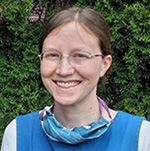
Eileen Kinch
Eileen Kinch is part of the Mosaic communication team and works with editing and writing. She holds a Master of Divinity degree, with an emphasis in the Ministry of Writing, from Earlham School of Religion.

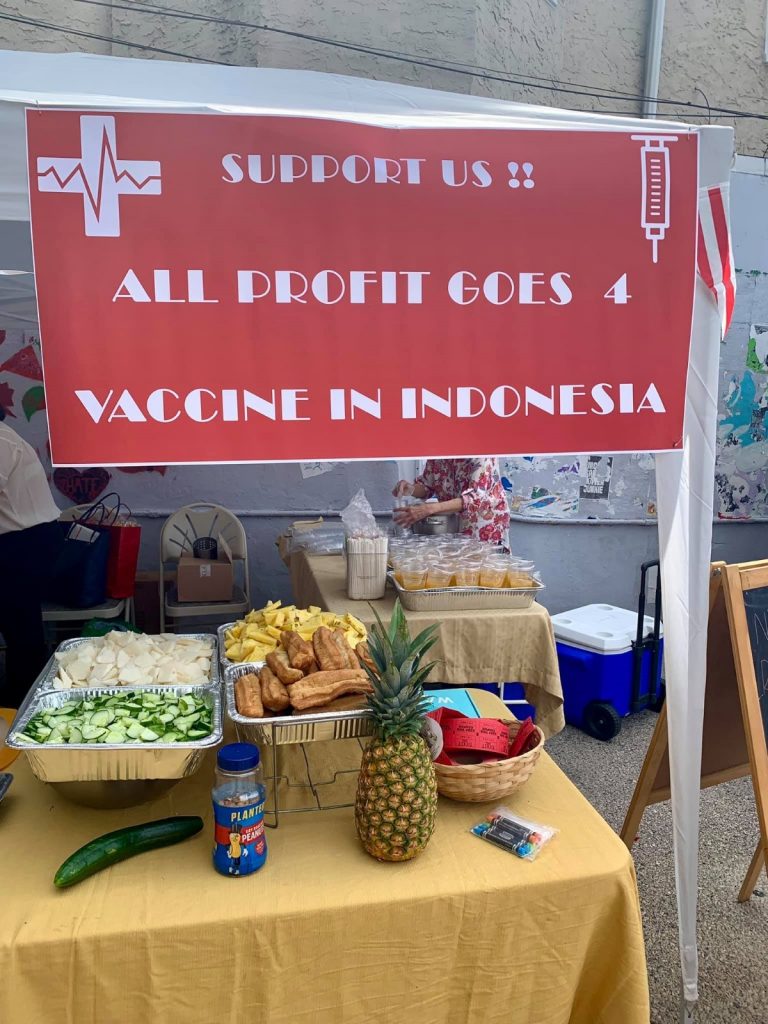
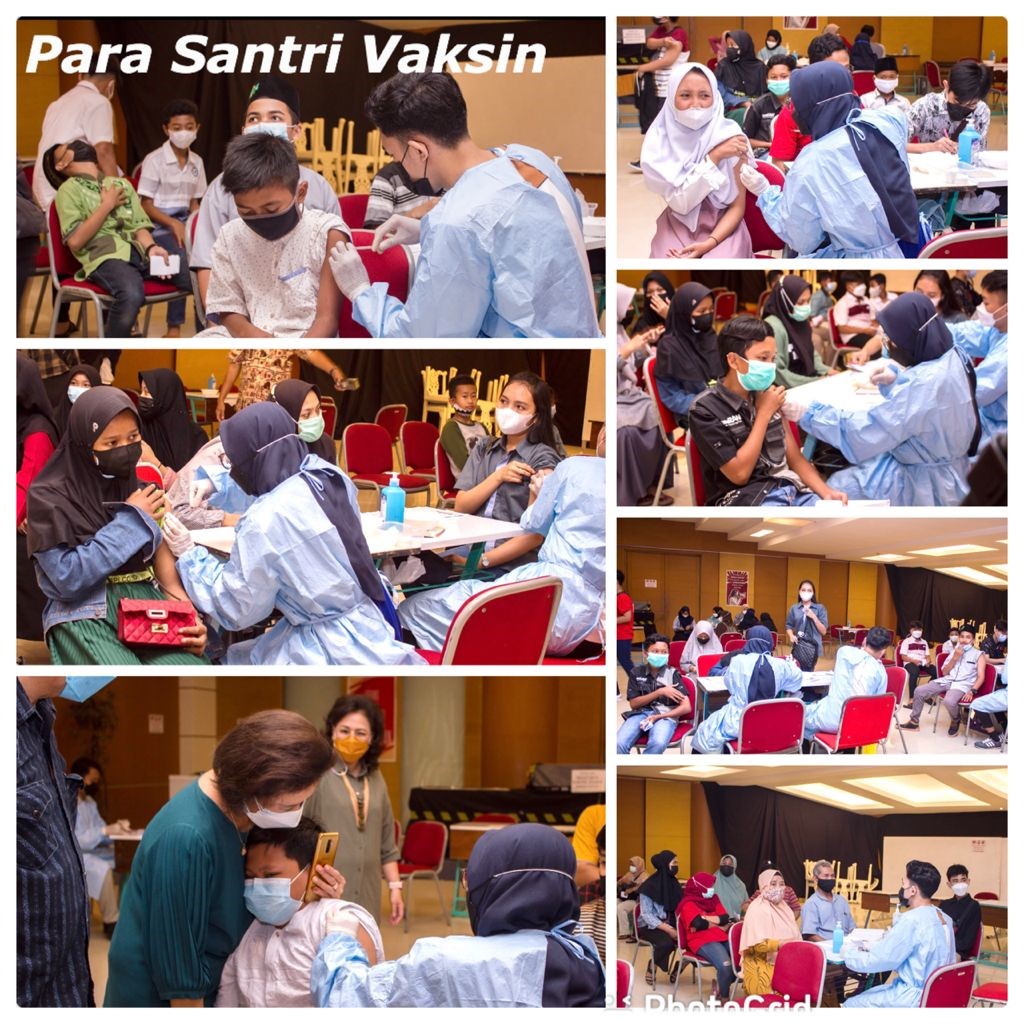
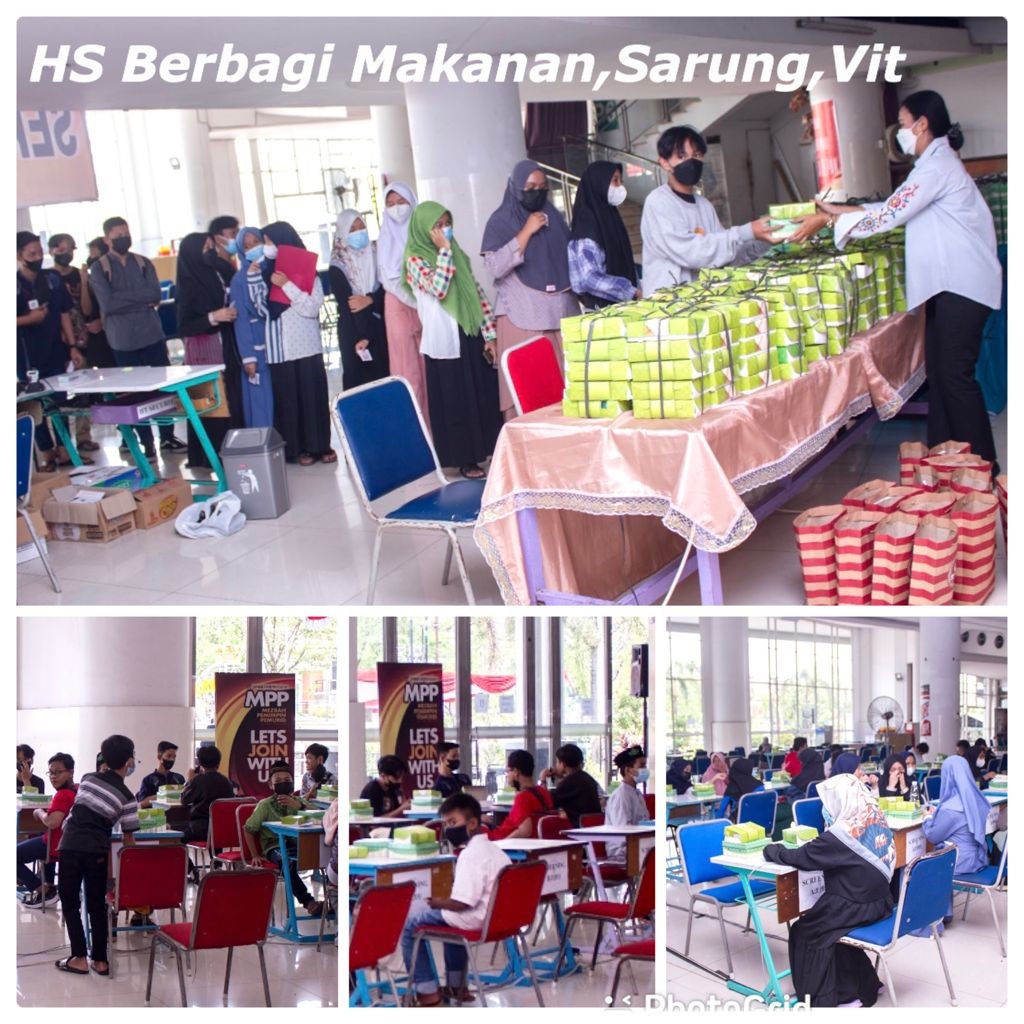
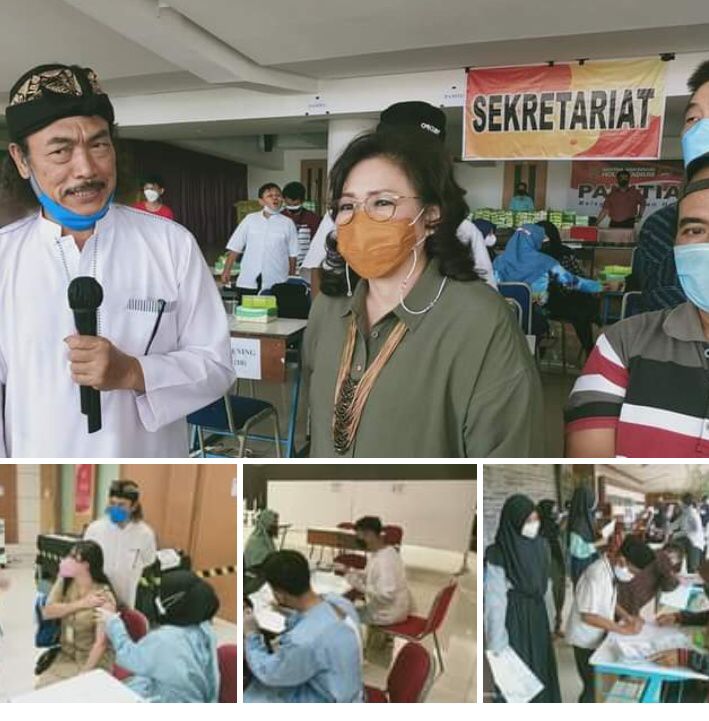
 Perkiomenville Mennonite Church
Perkiomenville Mennonite Church  What is now
What is now  With a tent perched in their parking lot, NVNNL hosted a couple hundred of present and former members, greatly enriched by their Norristown neighbors for gospel worship, led by acclaimed pianist James Crumbly, a concert with Crumbly and Friends and a pig roast and fiesta. The celebration was essentially an elaboration of what NVNNL does each month during the summer season, as Jim Williams, a long-time lay leader, “We canvass the neighborhood, hand out flyers inviting everyone to outdoor worship and a congregational meal.” As Marta Castillo, one of three pastors, remarked, “From the beginning it was in our DNA, first reaching out to Jewish, then African-American, then Spanish. And that day Pastor Beny from the Indonesian church in Philadelphia brought about two dozen folks, so it was more of a cultural mix than usual.”
With a tent perched in their parking lot, NVNNL hosted a couple hundred of present and former members, greatly enriched by their Norristown neighbors for gospel worship, led by acclaimed pianist James Crumbly, a concert with Crumbly and Friends and a pig roast and fiesta. The celebration was essentially an elaboration of what NVNNL does each month during the summer season, as Jim Williams, a long-time lay leader, “We canvass the neighborhood, hand out flyers inviting everyone to outdoor worship and a congregational meal.” As Marta Castillo, one of three pastors, remarked, “From the beginning it was in our DNA, first reaching out to Jewish, then African-American, then Spanish. And that day Pastor Beny from the Indonesian church in Philadelphia brought about two dozen folks, so it was more of a cultural mix than usual.” As more and more young men and women return home from war, the Mennonite church is faced with more of those people entering their congregations. As a peace church should we not be working toward helping all people find peace, including our veterans returning home from war?
As more and more young men and women return home from war, the Mennonite church is faced with more of those people entering their congregations. As a peace church should we not be working toward helping all people find peace, including our veterans returning home from war? Salem Mennonite Church says they were being challenged by God “to watch, look, and listen…” then join in! As they did this, Pastor Bruce at Salem was invited to organize the volunteers for the Union Cemetery project, a Quakertown private non-profit cemetery, that ended up in disarray. The project would be a cemetery clean-up, beautification, and weed whacking project. Salem Mennonite Church envisioned an opportunity to engage local youth to assist in the project. The Missional Operations Grant (MOG) that Salem received assisted in the purchase of necessary materials for the clean-up project and aided in providing space for youth to build relationships with church members.
Salem Mennonite Church says they were being challenged by God “to watch, look, and listen…” then join in! As they did this, Pastor Bruce at Salem was invited to organize the volunteers for the Union Cemetery project, a Quakertown private non-profit cemetery, that ended up in disarray. The project would be a cemetery clean-up, beautification, and weed whacking project. Salem Mennonite Church envisioned an opportunity to engage local youth to assist in the project. The Missional Operations Grant (MOG) that Salem received assisted in the purchase of necessary materials for the clean-up project and aided in providing space for youth to build relationships with church members. relationships with youth, local businesses, the community, and government leaders. It has lead to opportunities for the church to engage more deeply with their community.
relationships with youth, local businesses, the community, and government leaders. It has lead to opportunities for the church to engage more deeply with their community. The Lehigh Valley is home to some of Franconia Conference’s thriving congregations that operate on very limited funds. In order to aid those congregations work in music ministry and with children and youth, Franconia Conference provided a Missional Operations Grant (MOG) to both
The Lehigh Valley is home to some of Franconia Conference’s thriving congregations that operate on very limited funds. In order to aid those congregations work in music ministry and with children and youth, Franconia Conference provided a Missional Operations Grant (MOG) to both  adults! It is a great ‘problem’ to have, but it has continued to be a challenge for me as a pastor that is only to work 20 hours a week to navigate this and support our youth. When we dreamed about working with other small Anabaptist congregations several years ago, we still weren’t sure how we would financially be able to support anyone who could be a youth minister to our young people. We are so grateful for Danilo Sanchez’ work with the Lehigh Valley Youth. With the support of RIPPLE, WMC, Franconia’s Matching Grant, and MCC East Coast, we have been able to support Danilo for
adults! It is a great ‘problem’ to have, but it has continued to be a challenge for me as a pastor that is only to work 20 hours a week to navigate this and support our youth. When we dreamed about working with other small Anabaptist congregations several years ago, we still weren’t sure how we would financially be able to support anyone who could be a youth minister to our young people. We are so grateful for Danilo Sanchez’ work with the Lehigh Valley Youth. With the support of RIPPLE, WMC, Franconia’s Matching Grant, and MCC East Coast, we have been able to support Danilo for  this missional experiment with the Lehigh Valley Youth. He is able to work with youth from RIPPLE, Vietnamese Gospel, WMC, and the broader Karen Community. He has also done volunteer work in the community to connect with kids outside the church. Urban youth ministry is very different from other youth ministry and we are learning together how to start a relational, intergenerational youth ministry from the ground up. It’s challenging and messy. It requires flexibility and contextualization. This is work and these are kids who would not be getting the attention, support, and pastoring without the support of MCC and Franconia Conference. We are grateful for this on-going commitment to support folks on the margins! And look forward to what God will do in year 3 of this experiment!”
this missional experiment with the Lehigh Valley Youth. He is able to work with youth from RIPPLE, Vietnamese Gospel, WMC, and the broader Karen Community. He has also done volunteer work in the community to connect with kids outside the church. Urban youth ministry is very different from other youth ministry and we are learning together how to start a relational, intergenerational youth ministry from the ground up. It’s challenging and messy. It requires flexibility and contextualization. This is work and these are kids who would not be getting the attention, support, and pastoring without the support of MCC and Franconia Conference. We are grateful for this on-going commitment to support folks on the margins! And look forward to what God will do in year 3 of this experiment!”